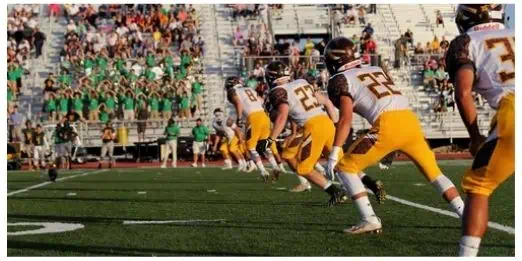While the majority of sports psychology is about the psychological aspects of sports, this article will explore how sport and performance psychology benefits athletes in an individual and team setting. The article will explore what a sports psychologist does and what qualifications are needed to become one, and how they can help athletes succeed.
Listen In
What Is Sport And Performance Psychology?
Sport and performance psychology is the study of how psychological factors affect athletes and performers. It is a relatively new field that has only recently gained recognition as its own distinct area of study. However, sports and performance psychology principles are rooted in established psychological theories and principles.
Sports psychology is concerned with helping athletes and performers to reach their full potential. The focus is on improving mental skills such as motivation, concentration, focus, self-confidence, and resilience. Sports psychologists work with individuals, teams, and coaches to help them overcome any obstacles preventing them from achieving their goals.
The primary aim of sports and performance psychology is to help athletes and performers be at their best when it matters most. It means being able to maintain peak performance levels even under pressure situations. It also involves helping athletes and performers cope with disappointment or setbacks and recover quickly from any setbacks to get back on track towards their goals.
How Can Sport And Performance Psychologists Help?
Whether you are a struggling athlete looking to improve your performance or a coach trying to get the maximum out of your team, working with a sports psychologist can be invaluable. Sports psychologists receive adequate training in the psychological factors that affect performance and can help individuals and groups identify and overcome obstacles to success.
If you are struggling with your performance or just looking to take your game to the next level, consider working with a sports psychologist. Sport psychologists can help you:
- Identify mental roadblocks to success.
- Develop strategies for dealing with pre-game nerves or anxiety
- Build confidence and motivation
- Improve focus and concentration
- Increase enjoyment of your sport or activity
Who Qualifies As A Sports Psychologist?
To be a sports psychologist, one must have a Ph.D. in clinical psychology or a related field and complete an internship and postdoctoral residency specializing in sports psychology. In addition, many states require licensure. Some states will also accept certification from the American Board of Professional Psychology (ABPP). The ABPP offers the Certified Consultant in Sport Psychology (CC-SP) credential, which requires completing a doctoral degree, an internship, and two years of professional experience.
Aspects to Consider When Choosing a Sports Psychologist
When choosing a sport and performance psychology, there are a few key aspects to keep in mind. Here are a few specific things to consider when making your choice:
- The sports psychologist’s experience and expertise. Choose a psychologist who has extensive experience working with athletes and performance enhancement.
- The psychologist’s approach. Be sure to choose a psychologist whose approach aligns with your needs and goals.
- The psychologist’s availability. Choose a psychologist who can work with you on a schedule that works for you.
- The cost of services. Be sure to consider the cost of services before making your final decision.
Choosing the right sports psychologist can make a difference in helping you reach your full potential as an athlete. Keep these critical considerations in mind when making your choice, and you’ll be on your way to finding the right fit for you.
How Does A Sports Psychology Consultant Help?
A sports psychology consultant near me can help an athlete in many different ways. For example, a consultant can help an athlete with goal setting, mental imagery, relaxation techniques, and pre-competition routines. A consultant can also help an athlete deal with difficult situations during competition, such as making a bad shot or losing a game. In addition, a consultant can provide support to an athlete’s family and friends.
What Are Some Common Techniques Used In Sports And Performance Psychology?
There are a variety of techniques that sports and performance psychologists use to help athletes improve their performance. Some of the most common sport and performance psychology techniques include goal setting, imagery, self-talk, relaxation, and concentration training.
- Goal setting is a technique that can help athletes focus on what they want to achieve. By setting specific, measurable, achievable, realistic, and time-bound goals, athletes can have a roadmap to follow as they work towards improving their performance.
- Imagery is another technique that consultants can use to help athletes improve their performance. By visualizing themselves succeeding in their sport, athletes can increase their confidence and motivation.
- Self-talk is another tool that athletes can use to improve their performance. By using positive self-talk, athletes can increase their confidence and focus.
- Relaxation is another technique that consultants can use to help athletes perform at their best. By learning how to relax before a competition, athletes can reduce anxiety and improve focus.
- Concentration training is also a valuable tool for athletes who want to improve their performance. By learning how to focus on the task at hand and block out distractions, athletes can increase their level of play.
How Can You Get Started With Sports And Performance Psychology?
There are a few ways to get started with sports and performance psychology. You can find a sports psychology consultant near me through your coach or athletic trainer or by searching for one in your area. You can also search through online resources or books on the subject. Once you’ve found someone to talk to, ask about their experience and training.
Conclusion
Sport and performance psychology is a fascinating topic that can help you understand why you excel at certain activities and why you struggle with others. By working with the correct sports psychologist, you can learn how to better tap into your potential and improve your performances both on and off the field. If you’re keen on learning and understanding more about sports and performance psychology, be sure to check with the appropriate psychologist.


One thought on “Psychology of Sports and Performance: Understanding the Sport Psychologist”
Comments are closed.